Iran Press/ Iran news: Rose water is a flavored water that made by rose petals in water, a by-product of the production of rose oil for use in the aroma. Rose water, as a component in some cosmetic and medical preparations, also used to flavor food and for religious purposes throughout Europe and Asia . Rose syrup is made from rose water, with sugar added.
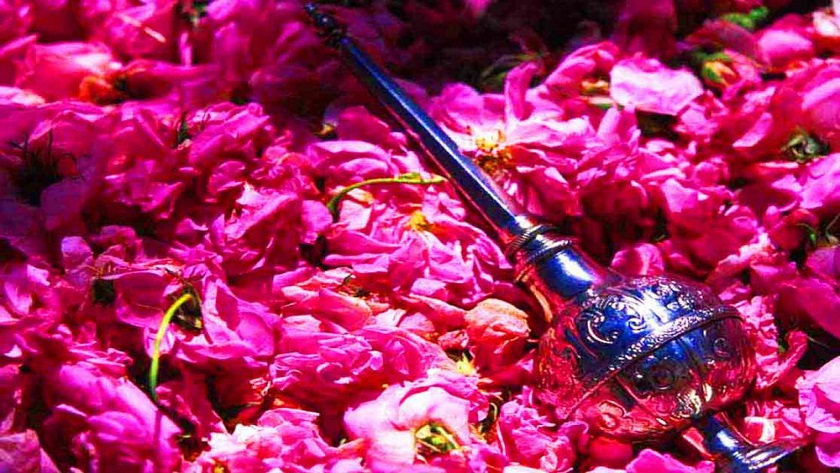 Iran produces best quality rose water
Iran produces best quality rose water
"Come out here where the roses have opened. Let the soul and the world meet". Rumi, the famous Persian poet of the 13th-century, has praised the wonders of the roses like many others. In all Persian literature, roses are a symbol of perfection and beauty, always wooed by the loving nightingale. When spring comes in Iran, roses are blooming everywhere from small city squares to majestic Persian Gardens.
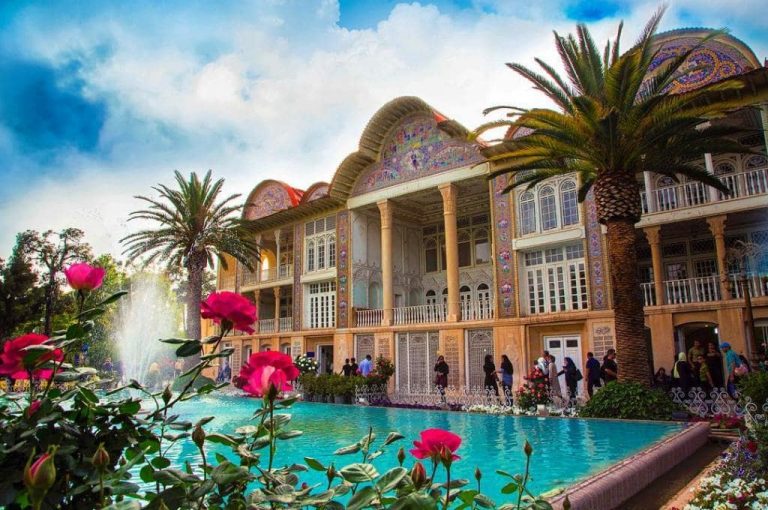 Eram Garden in Shiraz
Eram Garden in Shiraz
Iran, the Origin of Rose Water
The Mohammadi Rose has been cultivated in Iran since ancient times for its numerous qualities in medicine, nutrition, and cosmetics. Awe-inspiring fields of delicate rosebud had appeared more than 2000 years ago when the Sassanid Dynasty started rose cultivation for obtaining perfumes and rosewater. The Persians created the process of steam distillation to extract essential oil and rosewater from the flowers.
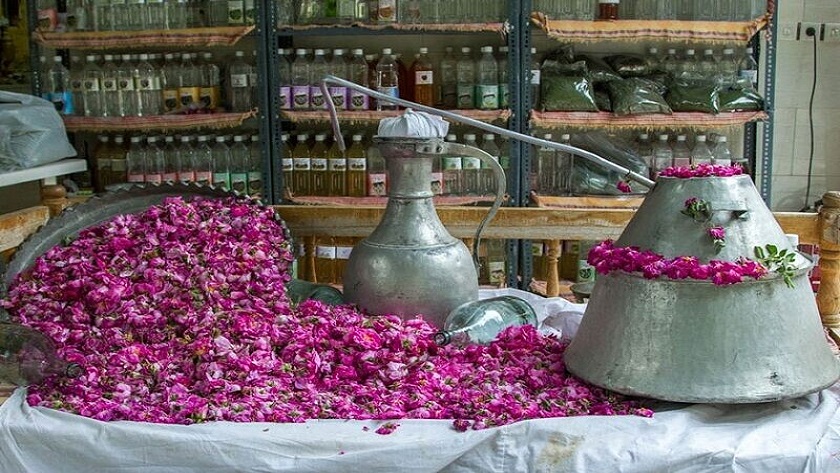 Producing rose water in Iran is an old custom
Producing rose water in Iran is an old custom
It is Avicenna, one of the famous Persian scientists, who produced rosewater in the 10th century. Yet, it's only from the 15th century that the distillation process was improved and genuinely implemented by the Persians nationally. Ancient stories recall that it was discovered at the wedding of the son of Akbar the Great, a Mongol Emperor. The garden where the marriage took place was encircled by a canal, into which thousands of rose petals were thrown. The hot temperature of that day resulted in the separation of the water with the essential oil of the flowers, wrapping the whole garden in the exquisite smell of roses.
Related article: Barberries; What Iran is known for
Iran is also cited as the first inventor of the first liquid distillation apparatus. The ancient Greeks understood that rose petal extracts could be retrieved and boiled in oil to achieve medicinal uses. But they did not understand rose water and liquid distillation techniques.
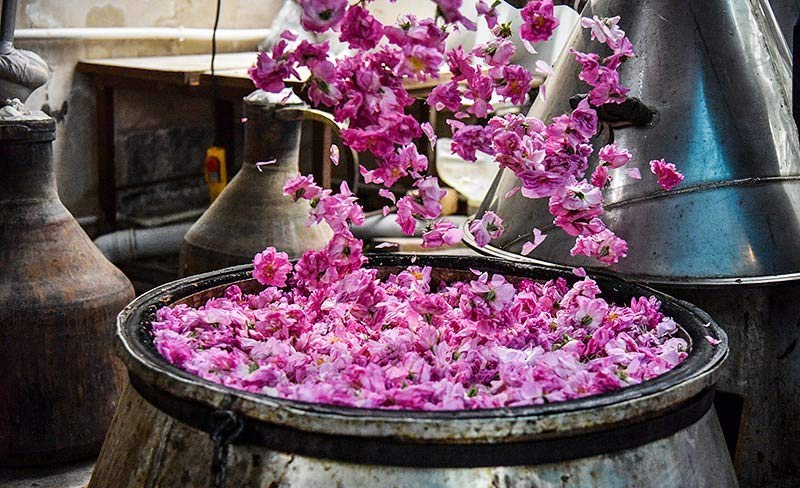 Each year in Ghamsar pure rose water is produced
Each year in Ghamsar pure rose water is produced
Qamsar, the Iranian capital of rosewater
Since then, the bewitching scent of the rose continuously spread throughout the Iranian plateau. Mohammadi Roses mainly grow in the provinces of Fars, Kerman, and Isfahan, as well as some parts of East and West Azerbaijan Provinces. It's in Isfahan Province, around the city of Kashan, that the most well-known roses are blooming. Kashan, Qamsar, and Barzok remain the main production centre of rosewater in Iran. Thanks to the exceptional natural and climatic conditions, these places can produce the finest and best quality rosewater in the world.
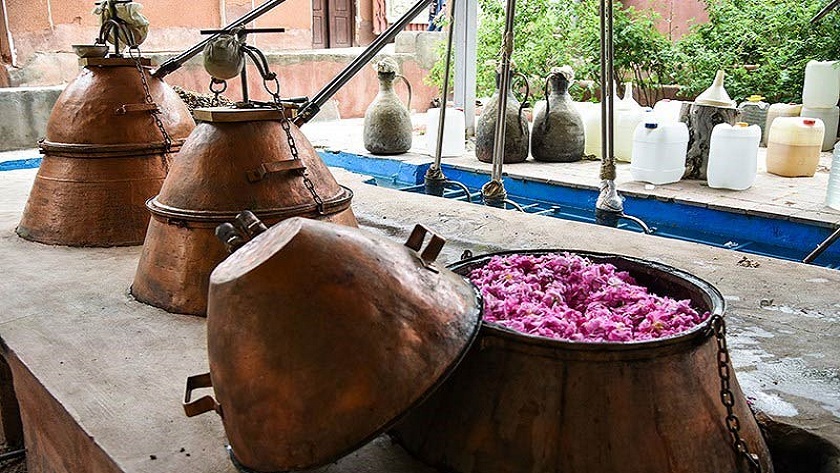 Holy Kaaba in Mecca is washed by Iranian rose water
Holy Kaaba in Mecca is washed by Iranian rose water
Religious uses
Rose water is used as a fragrance in religious ceremonies such as Muslim, Hindu, and Zoroastrian. Water used to clean the Kaaba, the Qibla for Muslims located in Mecca, combines water from the Zamzam Well with rose water as an additive. In the Indian subcontinent during Muslim burials, rose water is often sprinkled in the dug grave before placing the body inside. Rose water is used in some Hindu rituals as well. Rose water also figures in Christianity, particularly in the Eastern Orthodox Church.
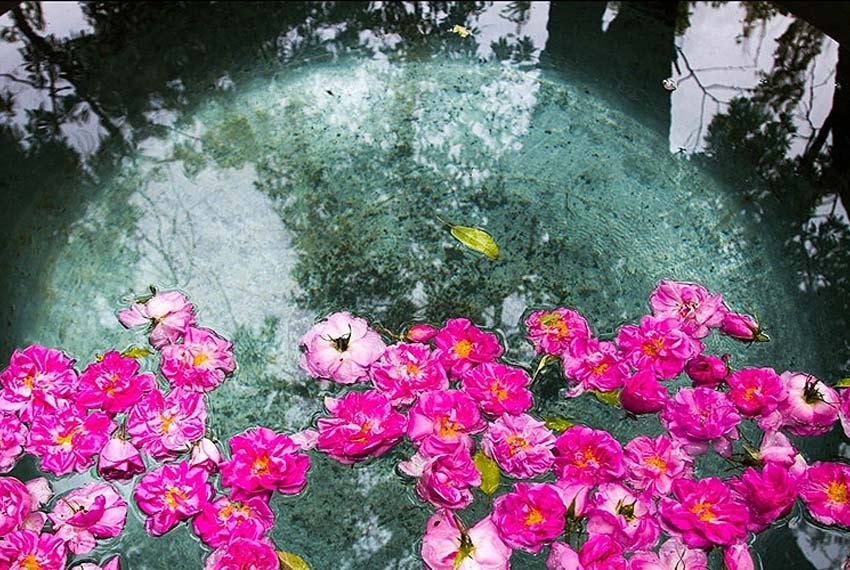 Kashan is center of rose water distillation in Iran
Kashan is center of rose water distillation in Iran
An incredible taste and numerous health benefits
Most perfume designers travel to the small village of Qamsar to buy the precious essential oil, which is the base of most perfumes in the world. Rosewater is also added to numerous cosmetic products, not only for its heavenly scent but also for its proven benefits for the skin.
Rosewater is a natural remedy for many health problems; hence, it had a medical application for centuries. Medical scientists have praised its health benefits. It is a stress reliever, a natural antiseptic, an anti-inflammatory that eases stomach pain and a strong sedative to relieve headaches.
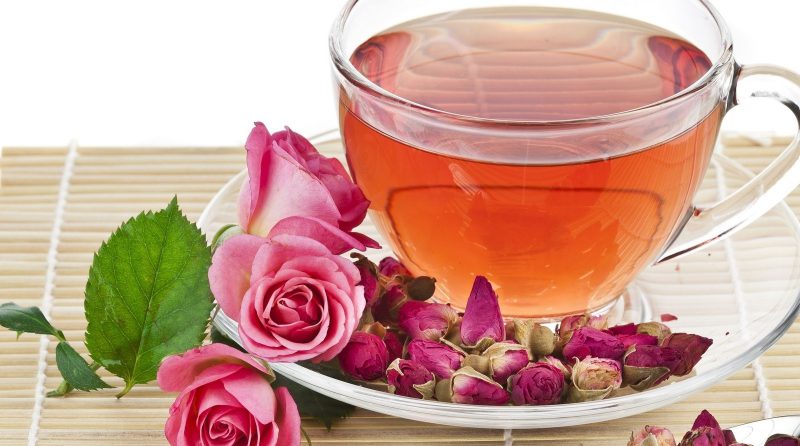 Tea with dried rose petals is a favorite drink among Iranians
Tea with dried rose petals is a favorite drink among Iranians
All Iranian households have a bottle of rosewater in their kitchen, as it is the main ingredient to many sweets, foods, and drinks in Persian cuisine. Its distinctive flavor perfectly spices up a refreshing summer cocktail or sherbet and gives its unique taste to many traditional sweets such as Baklava and nougats. Iranians are artists, so they know how to add some drops of this zesty flavor to Iranian brewed tea, lemon juice, and several traditional drinks.
Read More:
Rice; What Iran is known for
Persian Cuisine; What Iran is known for
Ashkan Salehian

